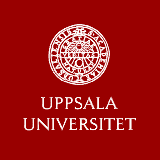Kalendarium
Högre seminarium24 okt 2017 kl. 13:15 – 15:00
Lokal: Eng 2-K1023
Prof. Robert Appelbaum (Uppsala University)
Performance and Performativity: An Introduction
In English the word ‘performance’ was used as early as the late fifteenth century. By contrast, ‘performativity’ is a neologism of the late twentieth century. A performance is first of all an undertaking, whether what is undertaken be a contract, a punishment, piece work in a factory, or a play. Performativity, by contrast, is a quality that can be attributed to an undertaking, its ability to enforce, reiterate or fashion social relations and personal identities. The performance of a play is always performative, and even in many different ways. But then there everyday ‘performances’ linked to ‘performativity’. Consider a shout in a theatre from a member of an audience: the shout might alert audience members to a danger in the hall; it might express a personal feeling in defiance of the theatrical pact of audience silence; it might aim to interrupt the play out of distaste, indignation or fright. The concepts of performance and performativity have a wide range of applications, and have recently become central to a number of different disciplines. ‘Theatre studies’ today is often engaged in ‘performance studies’, but so as well may be studies in anthropology, history, literature, sociology, and philosophy. Meanwhile the concept of ‘performativity’ has become a key to culture studies, queer theory, gender theory, race studies, legal studies and political science, not to mention the deconstructionist philosophy of language. What then is this turn to performance and performativity all about? In this introductory workshop, instead of looking at recent examples of the field, like Judith Butler’s Notes Toward a Performative Theory of Assembly (2015), we will look at its origins in the philosophy of language and modern theatre. We will read selections from J.L. Austin’s How to Do Things with Words, where the idea of performativity is first articulated, and the whole of Peter Brooks’s The Empty Space (originally published 1960), a key text of avant-garde dramatic theory, where Brook brings attention to the commercial, ritualistic, subversive and disruptive aspects of theatre. We will also read part of a play, Shakespeare’s The Taming of the Shrew (1594) where the performativity of language is put on display in a contest over gender relations, identity and authority. And then … we will put on the play, observing not only how language may affect reality, but also how bodies, gestures, movements, tonalities and so forth may affect how language affects reality. Bibliography J.L. Austin. How To Do Things With Words: The William James Lectures delivered at Harvard University in 1955. Available online at our library through Oxford Scholarship. Read at a minimum, Lectures I, II, and IX. Peter Brook. The Empty Space: A Book About the Theatre: Deadly, Holy, Rough, Immediate (Penguin Classics, 2008). William Shakespeare, The Taming of the Shrew. Any text. We will focus on Act II, Scene I, especially lines 165 – 312.
